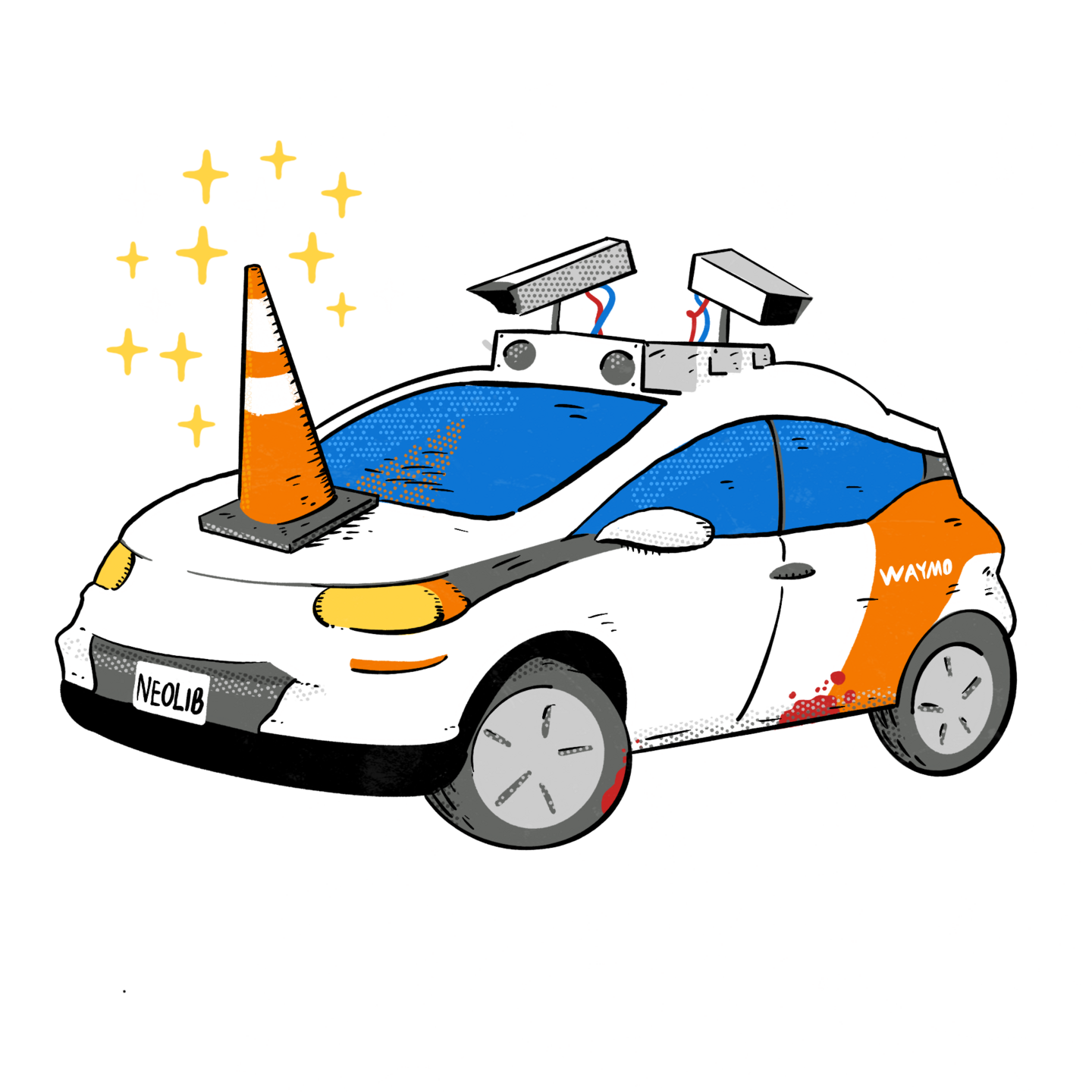
SF Standard – We Spoke to One of the Activists ‘Coning’ Cruise and Waymo Robotaxis in San Francisco
See full original article in the SF Standard by Kevin Truong.
Kevin Truong can be reached at kevin@sfstandard.com
A cohort of anti-autonomous vehicle activists in San Francisco has taken to placing traffic cones on the hoods of Cruise and Waymo robotaxis to literally stop their progress.
The only-in-San Francisco scene causes the vehicles to go into shutdown mode and turn their hazard lights on until the cone is removed or a company technician comes to reset the car’s system, according to activists and video posted online.
Dubbed the “Week of Cone” by the activist group Safe Street Rebel, the crusade is being organized in the lead-up to a California Public Utilities Commission meeting scheduled for July 13. At the meeting, commissioners are poised to approve an unlimited expansion of Cruise and Waymo robotaxi services in the city.
Safe Street Rebel is an activist group that first formed around the debate about reopening the Great Highway to cars. Since then, it has organized actions around a number of transportation-related issues, including keeping JFK Promenade car-free, promoting bike safety on Valencia Street and preventing traffic deaths.
Last month, the group staged a protest against public transit funding cuts where demonstrators blocked the Highway 101 off-ramp, and an activist dressed up as Gov. Gavin Newsom beat up a piñata shaped like a Caltrain car.
In short, its positions can be described as anti-car, pro-pedestrian safety and pro-transit.
One member of Safe Street Rebel, who asked to remain anonymous because of potential repercussions from the autonomous vehicle companies, said they’ve “coned” about a dozen cars so far. Although the activity was popularized by the activist group, the viral nature of the activity means that others have taken up the bright orange baton.
“We want to either have [autonomous vehicles] not on the city streets at all or very limited. We see them causing huge disruptions already,” the activist said. “It’s like the state has decided that these things are going to be deployed in San Francisco without the consent of the cityor the people in it.”
The activist said the group sees parallels between autonomous vehicles and rideshare services like Lyft and Uber, which initially promised to make roads safer, reduce car ownership and overall car use. Those promises ended up not coming to fruition.
“Just because there’s not a driver doesn’t mean it’s not a car, and cars are fundamentally incompatible with pedestrian safety and with the geometry of cities,” the activist said, pointing to situations where they were nearly hit by a Waymo in a crosswalk and have had the bike lane disrupted by Cruise vehicles.
The idea of coning self-driving cars buzzing around the city is a bit anarchic, but the Safe Street Rebel has laid out some basic ground rules. The group said it isn’t targeting any vehicles that have passengers in them and is avoiding coning vehicles in front of bus stops or other transit routes.
“If we want to get out of the climate crisis and meet our Vision Zero goals, we need to invest a lot in transit and active transportation, basically everything but cars,” the activist said.
For its part, the San Francisco Municipal Transportation Agency put out a tweet saying it does not endorse any actions that would increase the number of disabled autonomous vehicles and encouraged people to attend the utilities commission meeting next week.
A Waymo spokesperson touted the safety record of the company’s vehicles and said that the coning issue “is vandalism and encourages unsafe and disrespectful behavior on our roadways.”
“We will notify law enforcement of any unwanted or unsafe interference with our vehicles on public roadways,” the company said in a statement.
Cruise, whose vehicles have been the main victims of the coning trend because of its greater numbers, said that, at least up to this point, the viral trend hasn’t impacted its fleet overall in a meaningful way.
“Intentionally obstructing vehicles gets in the way of those efforts and risks creating traffic congestion for local residents,” said Hannah Lindow, a Cruise spokesperson, adding that the company’s fleet provides late-night transportation and food deliveries for food-insecure residents.
The “Week of Cone” is scheduled to end on Sunday, but the Safe Street Rebel activist admitted that the campaign has taken on a life of its own.
“People might just keep coning them, if not as a form of protest, then just for joy,” the activist said.
